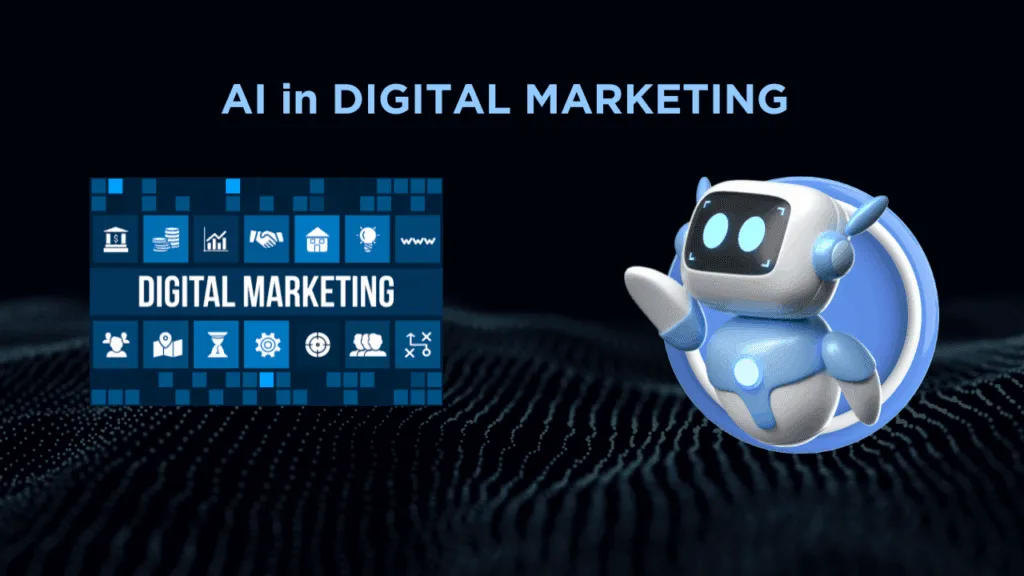The New Direction of Digital Marketing
The digital marketing landscape has changed more in the past five years than in the previous two decades. In 2025, Artificial Intelligence is no longer a supporting tool it is the strategic backbone behind how businesses connect, communicate, and convert their audiences.
AI is enabling smarter decisions, faster response times, and more personal experiences across every stage of the customer journey.
Real-Time Conversations with Intelligent Chatbots
One of the most noticeable shifts in user experience is the rise of conversational AI. Modern chatbots are no longer limited to answering simple questions. They can now:
- Engage customers in meaningful dialogue
- Handle transactions and product queries
- Learn from interactions to improve accuracy
This evolution has made AI-powered chatbots indispensable in delivering consistent customer support and sales assistance, day or night.
Anticipating Customer Actions with Predictive Intelligence
With access to massive amounts of user data, AI systems can now anticipate what users are likely to do next. This includes:
- Recommending products based on browsing patterns
- Identifying the right moment to send a personalized offer
- Preventing churn by detecting signs of customer dissatisfaction
This forward-looking approach allows marketers to stay ahead of customer needs, rather than simply reacting to them.
Voice Search is Reshaping SEO Tactics
As voice assistants become a regular part of daily life, marketers must adapt their SEO strategies accordingly. Voice searches tend to be more conversational and specific. To optimize content for this trend, brands should:
- Use question-based headlines and answers
- Focus on natural language phrases
- Structure content clearly for voice-friendly search engines
Ignoring voice search could mean missing out on a growing share of user queries.
Content Production Gets a Technological Boost
AI writing tools are changing how marketing teams approach content creation. From generating outlines to crafting full drafts, these tools help marketers:
- Produce high volumes of content efficiently
- Maintain consistency across platforms
- Focus human effort on refining tone and emotional appeal
This combination of speed and creativity makes AI-assisted content a vital resource in today’s content-heavy marketing strategies.
Making Every Interaction Personal
Generic messaging is quickly becoming ineffective. Today’s users expect content tailored to their preferences, and AI helps brands meet those expectations by:
- Customizing emails based on user activity
- Showing different website content to different visitors
- Delivering personalized recommendations in real time
This deep level of personalization leads to stronger engagement and improved loyalty.
Automating the Ad Process for Better Results
Programmatic advertising has allowed marketers to automate their ad buying and placement decisions with the help of AI. This process includes:
- Real-time bidding for ad space
- Dynamic adjustment of budgets and creatives
- Precision targeting based on user behavior
This level of automation leads to more effective ad campaigns and reduces manual oversight.
Video Marketing Powered by Artificial Intelligence
Video remains one of the most effective formats for capturing attention. AI is now enhancing video content by:
- Editing videos automatically for different platforms
- Generating subtitles and scene highlights
- Analyzing viewer data to optimize performance
This helps marketers produce professional-level video content faster and at lower cost.
Exploring New Search Methods: Visual and Voice Commerce
Consumers are now using photos and voice commands to find products and services. AI makes this possible by powering:
- Visual recognition for product discovery
- Voice-enabled product search and ordering
- Multimodal interactions that blend text, voice, and visuals
To remain competitive, brands must ensure their content is discoverable through all these emerging formats.
Responsible AI Use Builds Consumer Trust
As AI becomes more central in marketing, ethical use becomes a major factor in building brand trust. Key practices include:
- Being transparent about how AI is used in content
- Following data privacy laws and user consent protocols
- Avoiding manipulation or unethical automation
Responsible use of AI is not just a legal requirement it’s a long-term investment in brand integrity.
The Road Ahead: Intelligent and Immersive Marketing
The next stage in AI marketing will combine data, automation, and immersive technology. Marketers can expect innovations such as:
- Fully AI-driven customer service environments
- Predictive video content tailored to user behavior
- Augmented reality experiences designed in real time by AI
These changes will reshape how consumers experience brands and how brands earn attention.
Final Thoughts
AI has moved from concept to execution, becoming an integral part of modern digital marketing. Whether it is driving real-time interaction or helping marketers understand behavior at scale, AI enables strategies that are more personalized, efficient, and effective.
The future of marketing is not just digital it is intelligent, responsive, and deeply human. The brands that adapt now will lead tomorrow.


